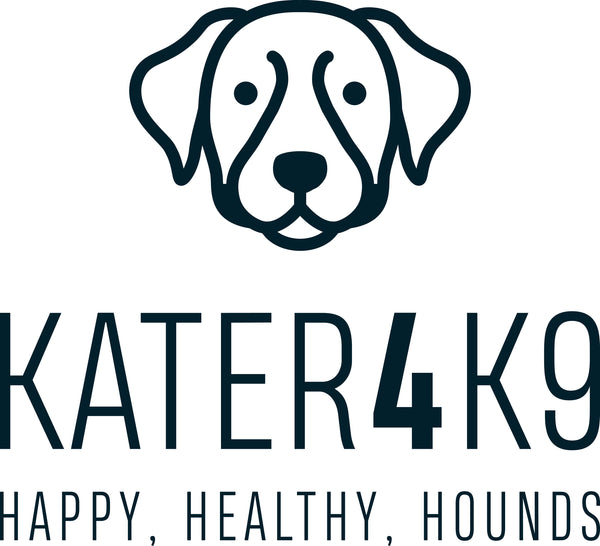Joint health is a vital aspect of ensuring a long, comfortable, and active life for our canine companions. Many pet owners turn to supplements, particularly collagen, as a means of supporting their dog’s mobility and preventing or managing conditions like arthritis. While collagen has its merits, relying on it as a standalone joint supplement for dogs may not be sufficient. In this article, we’ll explore the role of collagen, its benefits, and why a more comprehensive approach to joint supplementation is necessary.
The Role of Collagen in Joint Health
Collagen is the primary structural protein in connective tissues, including cartilage, tendons, and ligaments. It provides the tensile strength and elasticity needed to maintain the integrity of these tissues. In dogs, collagen supplementation is often used to support joint health by promoting cartilage repair and reducing the wear and tear associated with ageing or high activity levels.
Hydrolysed collagen, often referred to as collagen peptides, is particularly popular in joint supplements. This form is broken down into smaller, more easily absorbed peptides that stimulate the body’s production of collagen. It can help reduce joint pain and improve mobility in dogs, particularly those with osteoarthritis or joint degradation.
The Problem with Collagen Alone
Despite its benefits, collagen as a standalone joint supplement has several limitations when addressing canine joint health.
1. Collagen Does Not Address Inflammation
Joint issues in dogs, particularly arthritis, are often accompanied by inflammation. Collagen lacks the anti-inflammatory properties needed to manage this aspect of joint health. Chronic inflammation can exacerbate joint degradation and pain, limiting the effectiveness of collagen in providing long-term relief.
For inflammation control, ingredients like omega-3 fatty acids (from fish oil), turmeric (curcumin), and glucosamine are more effective in addressing the root cause of discomfort.
2. Limited Support for Cartilage Rebuilding
While collagen contributes to cartilage repair, it doesn’t provide all the necessary building blocks required for optimal cartilage regeneration. Key compounds like glucosamine and chondroitin sulphate are essential for maintaining and rebuilding the cartilage matrix. Glucosamine stimulates the production of glycosaminoglycans, while chondroitin provides resilience and elasticity to cartilage. Without these components, the rebuilding process remains incomplete.
3. Insufficient Lubrication for Joints
Joint health isn’t just about maintaining cartilage; lubrication within the joint capsule is equally important. Synovial fluid, which acts as a lubricant and shock absorber, is crucial for smooth joint movement. Hyaluronic acid (HA) is a key component of synovial fluid and can significantly improve joint lubrication. Collagen, however, does not directly influence synovial fluid production, leaving this aspect of joint care unaddressed.
4. No Antioxidant Protection
Oxidative stress plays a significant role in joint degeneration. Reactive oxygen species (ROS) can damage cartilage and exacerbate inflammation. Collagen alone doesn’t offer antioxidant properties to combat these effects. Ingredients such as vitamin E, selenium, and certain polyphenols are necessary to neutralise free radicals and protect joint tissues from oxidative damage.
5. Variable Absorption and Bioavailability
Although hydrolysed collagen is more bioavailable than other forms, its absorption and utilisation can still vary depending on the dog’s digestive health and overall metabolism. Without complementary nutrients like vitamin C, which aids collagen synthesis, the effectiveness of collagen supplements may be limited. Dogs with digestive issues or poor nutrient absorption may not experience the full benefits of collagen supplementation.
A Comprehensive Approach to Joint Supplementation
For optimal joint health in dogs, a multi-ingredient approach is far more effective than relying solely on collagen. A well-rounded joint supplement should address all aspects of joint health, including cartilage repair, inflammation control, lubrication, and antioxidant protection. Here are some key ingredients to look for:
• Glucosamine and Chondroitin Sulphate: Essential for cartilage repair and regeneration.
• Hyaluronic Acid (HA): Supports joint lubrication and reduces stiffness.
• Boswellia Extract: A natural anti-inflammatory that helps reduce joint pain and stiffness.
• Turmeric (Curcumin): A natural anti-inflammatory with antioxidant properties.
• MSM (Methylsulfonylmethane): Reduces inflammation and provides sulphur, a vital component of cartilage.
• Vitamin C and E: Offer antioxidant protection and support collagen synthesis.
• Green-Lipped Mussel (GLM): A rich source of omega-3s, glucosamine, and other beneficial compounds for joint health.
• Beta Glucans: Known for their immune-modulating properties, these compounds can help reduce inflammation and support overall joint health.
• Manganese: Plays a crucial role in the synthesis of cartilage and the activation of enzymes involved in bone and joint health.
When Collagen Fits Into the Puzzle
This isn’t to say collagen doesn’t have a role to play. It’s an excellent addition to a joint health regimen, particularly as a preventive measure or as part of a broader supplement formula. Collagen’s ability to promote cartilage health and support connective tissues makes it a valuable ingredient, but it works best when combined with other nutrients that address the multifaceted nature of joint health.
Consulting Your Vet
Before introducing any joint supplement to your dog’s diet, it’s essential to consult your vet. They can assess your dog’s specific needs based on age, breed, activity level, and existing joint conditions. Additionally, they can recommend high-quality supplements with proven efficacy.
Conclusion
Collagen alone isn’t a magic bullet for canine joint health. While it offers undeniable benefits, its limitations make it insufficient as a standalone solution. A comprehensive joint supplement that includes collagen alongside other key nutrients provides a more holistic approach, addressing inflammation, cartilage repair, lubrication, and antioxidant protection. By adopting this multi-faceted strategy, you can give your dog the best possible support for their joints and overall mobility, ensuring they remain happy and active throughout their life.

